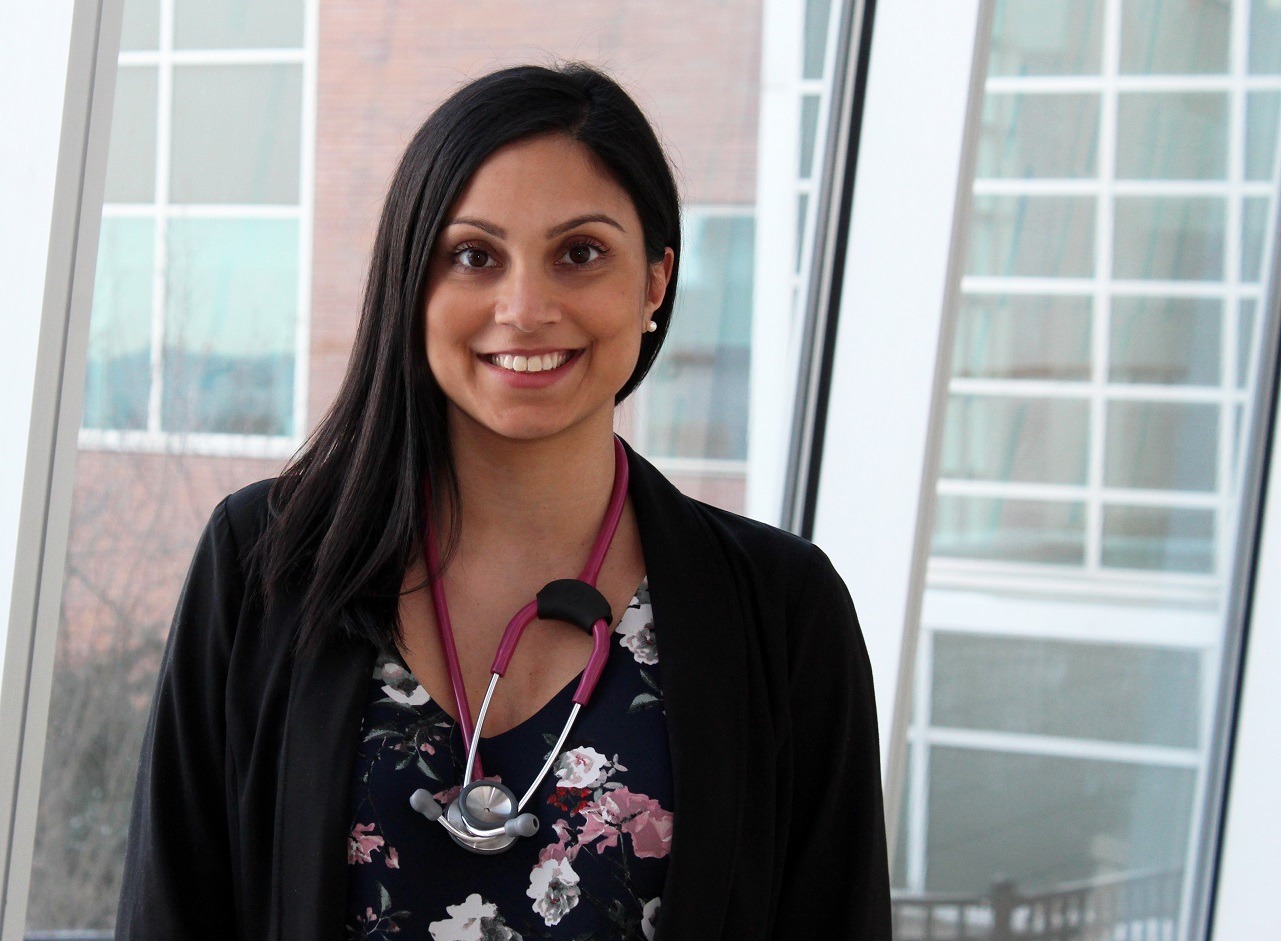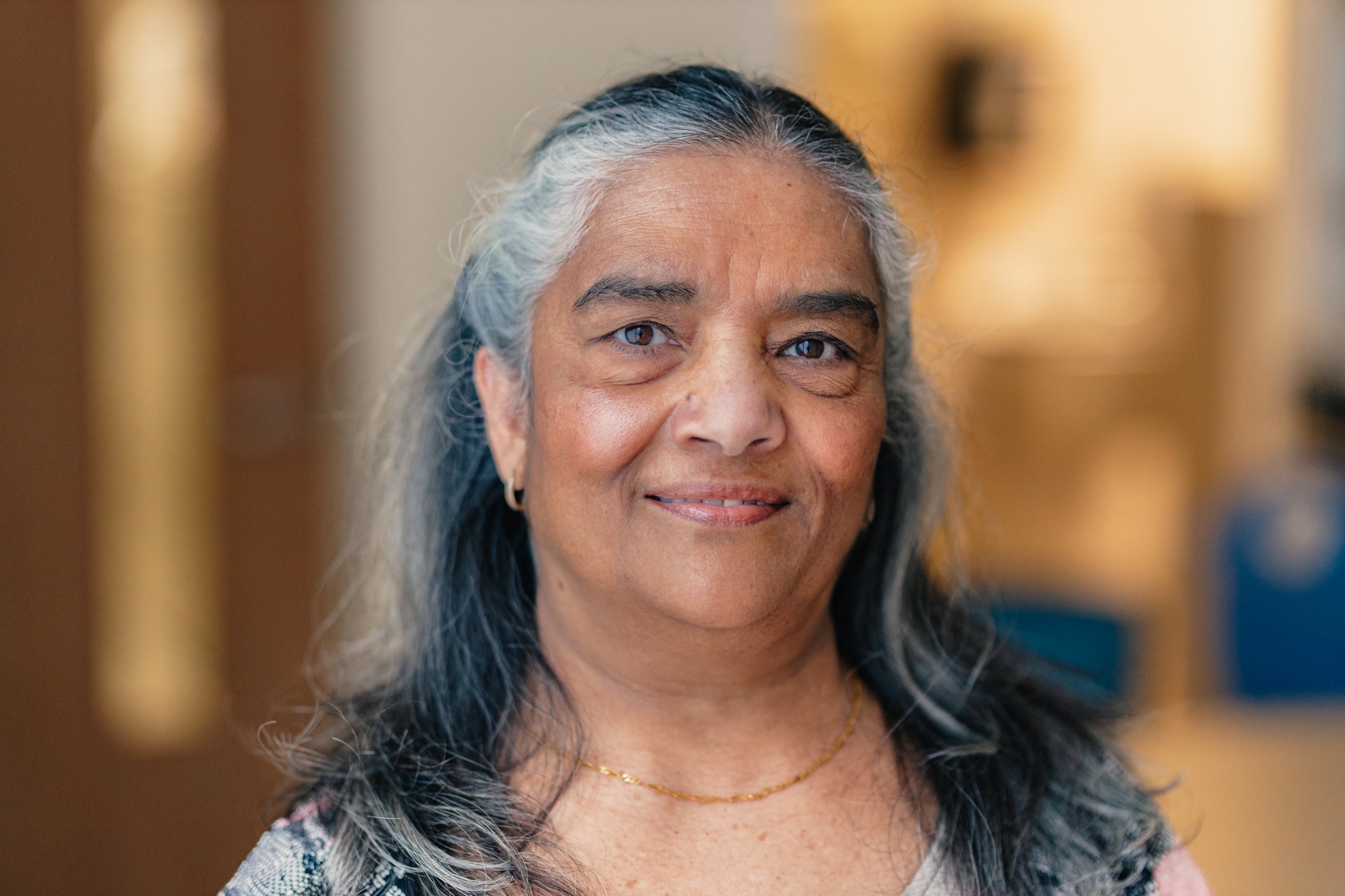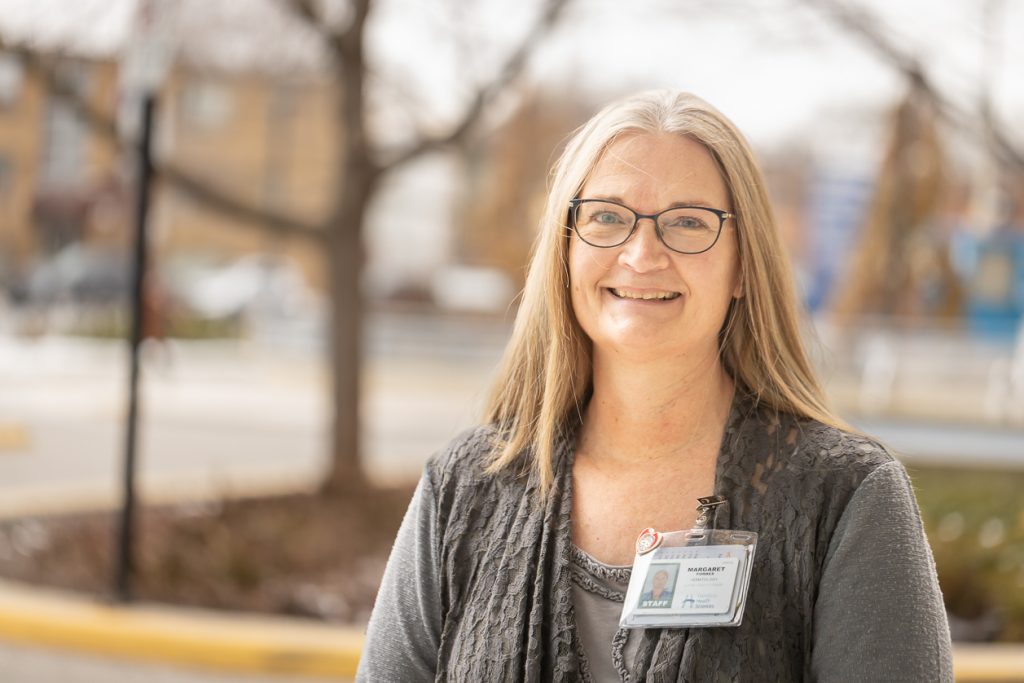
Nurse practitioners play major role in caring for patients with blood diseases
Alexandra LaCivita was a teenager the first time she received care from a nurse practitioner. Eight years later, the 25-year-old woman from Crystal Beach continues to rely on nurse practitioners for ongoing care at Hamilton Health Sciences (HHS)’ Juravinski Hospital and Cancer Centre (JHCC).
“They really know my day-to-day situation and how I’m doing.” — Alexandra LaCivita, patient
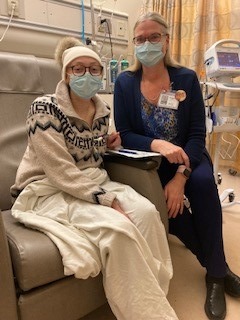
Alexandra LaCivita (left) with nurse practitioner Margaret Forbes
“Nurse practitioners are really caring, and know your case like the back of their hand,” says LaCivita, who was diagnosed with Hodgkin’s lymphoma at age 17 when she was a first-year student at Mohawk College.
Since then, LaCivita has undergone three stem cell transplants at JHCC, with the most recent one just a few weeks ago. “I’ve been cared for by nurse practitioners throughout my cancer journey,” says LaCivita.
“They make sure everything goes smoothly. They really know my day-to-day situation and how I’m doing.”
Who are nurse practitioners?
Nurse practitioners are registered nurses with additional education and experience to perform some medical procedures.
“As nurse practitioners, we offer patients the best of both worlds with training in nursing and medicine.” — Margaret Forbes, nurse practitioner
Their role includes treating illnesses, ordering and interpreting tests, prescribing medications and performing certain procedures.
Nurse practitioners also gather a patient’s medical history, offer healthy lifestyle suggestions and teach people how to manage chronic illness. They are often involved in leadership, quality improvement and research roles.
“As nurse practitioners, we offer patients the best of both worlds with training in nursing and medicine,” says Margaret Forbes, LaCivita’s nurse practitioner, and the nurse practitioner lead for complex malignant hematology at JHCC.
The JHCC care model
Nurse practitioners can be found working across HHS, but one of the largest teams is the complex malignant hematology team at JHCC where they care for patients diagnosed with leukemia, lymphoma, multiple myeloma and various other blood cancers.
Fourteen nurse practitioners work in this department. “It’s likely one of the largest nurse practitioner groups in a hematology program nationally, making it a fairly unique model Canada-wide,” says Forbes. HHS developed this model of care to meet the growing needs of this patient population.
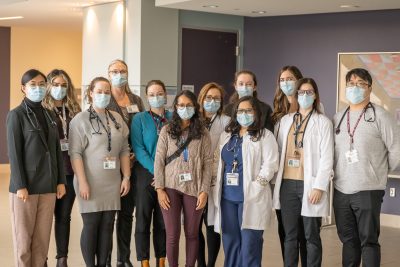
Nurse practitioner team for complex malignant hematology at Juravinski Hospital and Cancer Centre
The hematology medical team at JHCC includes hematologists (physicians), nurse practitioners and other health-care professionals who work together to provide 24/7 medical coverage to patients. Other members of the health-care team include nurses, pharmacists, physiotherapists, occupational therapists, dietitians and social workers.
When newly-diagnosed patients are admitted to hospital, they’re seen by the hematologist on service. Hematologists are medical doctors specializing in blood cancers. This hematologist becomes the patient’s specialist, providing ongoing care after the patient is discharged. While the patient is in hospital, nurse practitioners provide day-to-day care to manage the complex needs of each patient, in consultation with the hematologist on service. The nurse practitioner, hematologist and patient work together to make decisions.
“Nurse practitioners manage patient care, with hematologists providing their deep expertise in an advisory capacity, and the whole team works together to deliver patient care,” says Forbes.
Mentoring new nurse practitioners
To encourage nurse practitioners to work in this specialty, Forbes led a first-of-its-kind Nurse Practitioner Fellowship Program in complex malignant hematology, launched in 2020. It was established through support from the late Ron Clark and his wife Nancy Clark of Caledonia through a generous donation to the Hamilton Health Sciences Foundation.
The one-year fellowship helps nurse practitioners develop the specialized knowledge and skills in caring for this patient population. Three nurse practitioners have completed the fellowship so far.
“It’s a wonderful way to introduce nurse practitioners into this very challenging, and satisfying field of practice,” says Forbes.


